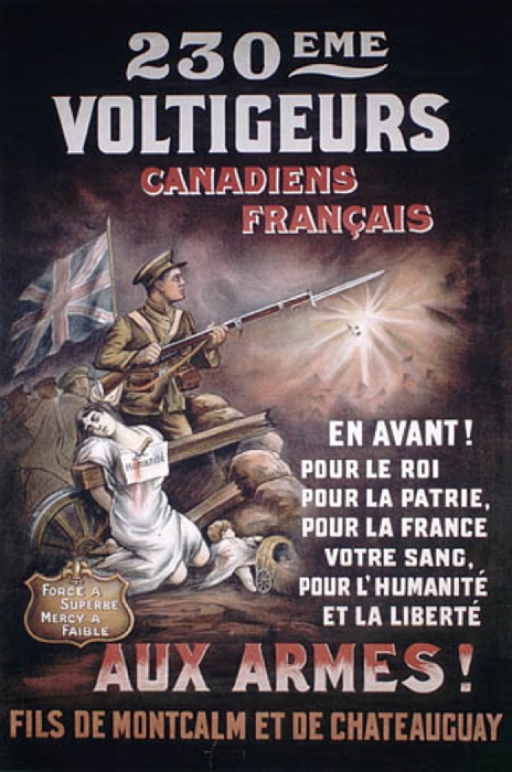Centenary News writer, Christopher Harvie, discusses “Liberté!”, the one man, one act play with a limited run attempting to give a voice to a unique part of Canada’s First World War heritage in French.
The play, “Liberté!” written and performed by Carol Beaudry fulfills his desire “to bring to the stage their words so we can never forget the sacrifices of our ancestors.” M. Beaudry based the material for his play upon the 2011 book by Michel L’Italien “Écrir sa Guerre: témoignages de soldats canadiensfrançais 19141918” (Writings on War: Testimonies of FrenchCanadian Soldiers 19141918).
For Beaudry, this effort was, in effect, to help him understand the experiences of men from so long ago, particularly in a tribute to his paternal grandfather whom he never met. He states: “I never got to talk to him, ask him: ‘Granddad, how was it in the trench?’ Would he have given me an answer, I don’t know. He was part of this generation of men who didn’t like long discussions. But maybe the generation gap would have brought us closer. Maybe he would have opened up to his last grandson.”
French Canadians and WWI
The shadow of a divisive controversy coupled with the stoicism in keeping with the time, where men, according to L’Italien “were reluctant to speak of their experiences unable to express the inexpressible” has meant a great silence of contemporary accounts for the war. Between 1919 and 2005, only five personal journals or books on the war have been published for a FrenchCanadian audience. The elephant in the room when speaking of Canada’s war experience is the cultural divide between English and French Canadians. In 1914, Canada’s population was largely British born or descended, and, from that perspective, the enthusiasm to support the war in Europe because of a close generational link to the United Kingdom is easily understood. FrenchCanadians, on the other hand, were more likely to have a longer reaching national heritage. Appeals to Quebecois to support France’s struggle in the same respect as English Canadians to support Britain were misguided at best. With help from Vincent, a clerk at Statistics Canada, I was able to determine that, according to the 1911 census, 26% of the population was FrenchCanadian. Throughout the war, Canada contributed 600,000 men to the military effort, and yet there were only 35,000 French Canadians who served a particular disparity not often, or easily, understood. When the Canadian Expeditionary Force was formed, no allocation was made for Frenchspeaking battalions. Only after newspaper campaigns were francophone units authorized, starting with the 22é Battalion in October of 1914.
Changing Perspectives
The war itself, Canada’s involvement and later the issue of conscription (all of which were seen as overtly proBritish) were used as rallying points for a germinating movement of FrenchCanadian Nationalism. Because this movement has current relevance, the historiography of Quebec in the First World War has become focused on the opposition movement and the surrounding controversies rather than the voluntary contribution and sacrifice of FrenchCanadians. M. Beaudry seeks to break this silence and bring the contribution of these men back into focus; beyond the polarizing and politicizing aspects attached to Quebec’s wartime past. “That’s my quest, give back a voice to these men that went on, head first, in what was called the Great War, the war that would end every war.”
Initial Success
An initial run between 2628 of September at the Journées de la Culture du Quebec was merited a critical success. Says M. Hamel, the Director of the Musée du Royal 22ième Régiment: “The story is told with a certain sense of humour, and he shares some experiences that might make you smile even though the situation is dramatic…. It makes you wonder why your smiling. This emotional roller coaster won’t leave you indifferent. The play is realistic, full of intensity, and really touching.”
“Liberté!” will be presented on the 10th and 11th of November at the College SaintAlexandre in Gatineau and on the 22nd of November at the Armouries of the Fusiliers MontRoyale, in Montreal.
Credit: Christopher Harvie
Library and Archives Canada, C-095378 Acc. No. 1983-28-693
